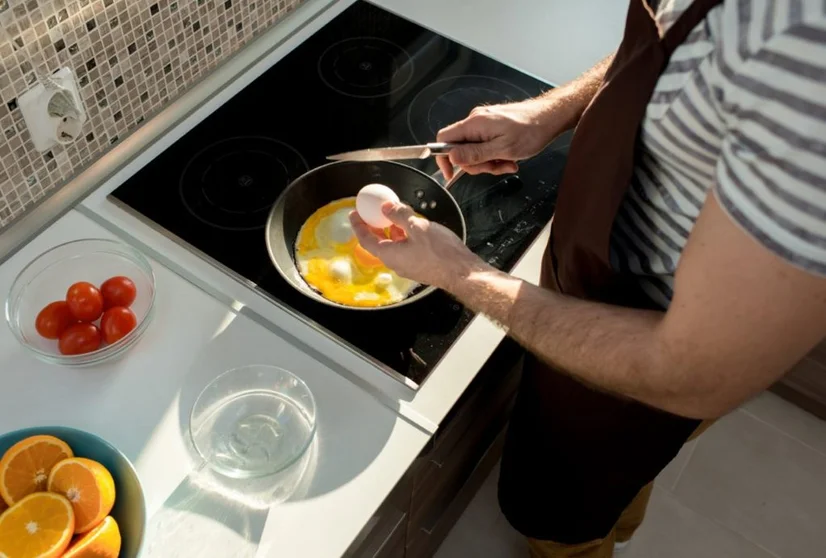How Fast Does Cast Iron Heat on Induction Cooktops?
Written By James Morgan
Barbecue enthusiasts are always on the lookout for the best tools to achieve that perfect sear and flavor. One question that often arises is how fast does cast iron heat on induction cooktops? Understanding this can be key to refining your grilling techniques and ensuring your dishes turn out perfectly.
Induction cooking has gained popularity for its efficiency and precision. Unlike traditional gas or electric stoves, induction cooktops use electromagnetic fields to heat cookware directly. When it comes to cast iron, a favorite among grill masters, the interaction with induction cooktops can be fascinating.

Understanding Induction Heating
Induction cooktops rely on electromagnetic fields to heat pots and pans directly. This means that the cookware itself becomes the heat source rather than an external element. This method of heating is not only faster but also more energy-efficient. For those interested in the science behind it, the electromagnetic field induces a current in the ferrous material of the cookware, generating heat.
Why Cast Iron?
Cast iron is a popular choice for many cooking enthusiasts, especially those who love to grill. Its ability to retain heat, provide even cooking, and withstand high temperatures makes it ideal for searing and grilling. When paired with an induction cooktop, cast iron's heating properties can be fully maximized.
Speed of Heating: Cast Iron on Induction
The speed at which cast iron heats on an induction cooktop can vary based on several factors, including the thickness of the pan and the power of the induction stove. Generally, cast iron heats up quickly on an induction cooktop, often reaching the desired temperature in just a few minutes. This swift heating process is perfect for those who wish to cook meats to perfection, ensuring that they are seared on the outside while remaining juicy on the inside.
Factors Affecting Heating Speed
- Thickness of the Cast Iron: Thicker pans may take slightly longer to heat but will retain heat more effectively.
- Induction Cooktop Power: A more powerful induction cooktop will heat cast iron faster.
- Preheating: Allowing the pan to preheat properly can significantly affect cooking outcomes, especially for grilling aficionados.
For more detailed tips on searing meat in cast iron on induction, check out our related article.
Benefits of Using Cast Iron on Induction
Using cast iron on an induction cooktop offers numerous benefits, especially for barbecue enthusiasts. The rapid and even heating ensures that meats are seared to perfection, and the heat retention properties of cast iron keep the food warm longer, making it ideal for serving multiple guests.
Perfect Grill Marks
One of the joys of grilling is achieving those beautiful grill marks on your meats. With the right technique and equipment, achieving these marks is easier. For tips on how to achieve the perfect grill marks, refer to our guide on how to get perfect grill marks.
Challenges and Considerations
While there are many benefits to using cast iron on induction cooktops, there are also challenges. Cast iron can be heavy, making it difficult to maneuver, and it requires proper care to prevent rusting. However, with the right maintenance, these pans can last a lifetime.
For those interested in learning more about how cast iron works on various heat sources, you can explore this comprehensive guide.
Care and Maintenance
Maintaining your cast iron cookware is crucial. Regular seasoning and proper cleaning will ensure that your pans remain in excellent condition. For more insights, visit our holiday grilling tips for maintaining your equipment.

FAQs
Q1: Can all cast iron pans work on induction cooktops?
A1: Yes, all cast iron pans are compatible with induction cooktops as they are made of ferrous materials required for induction heating.
Q2: How do I know when my cast iron pan is hot enough?
A2: One trick is to sprinkle a few drops of water on the pan; if they dance and evaporate quickly, the pan is ready.
Q3: Is cast iron better than other materials for induction cooking?
A3: While cast iron is excellent due to its heat retention and even cooking, other materials like stainless steel can also be effective. The choice often depends on the specific cooking needs.
For more information about whether cast iron works on induction cooktops, visit this page.



